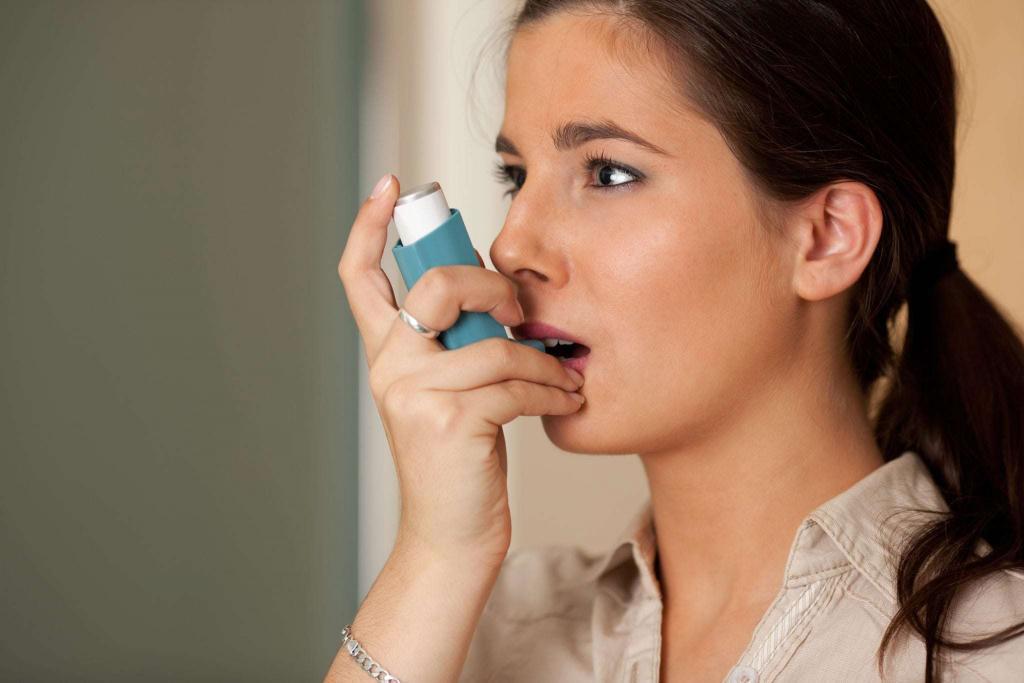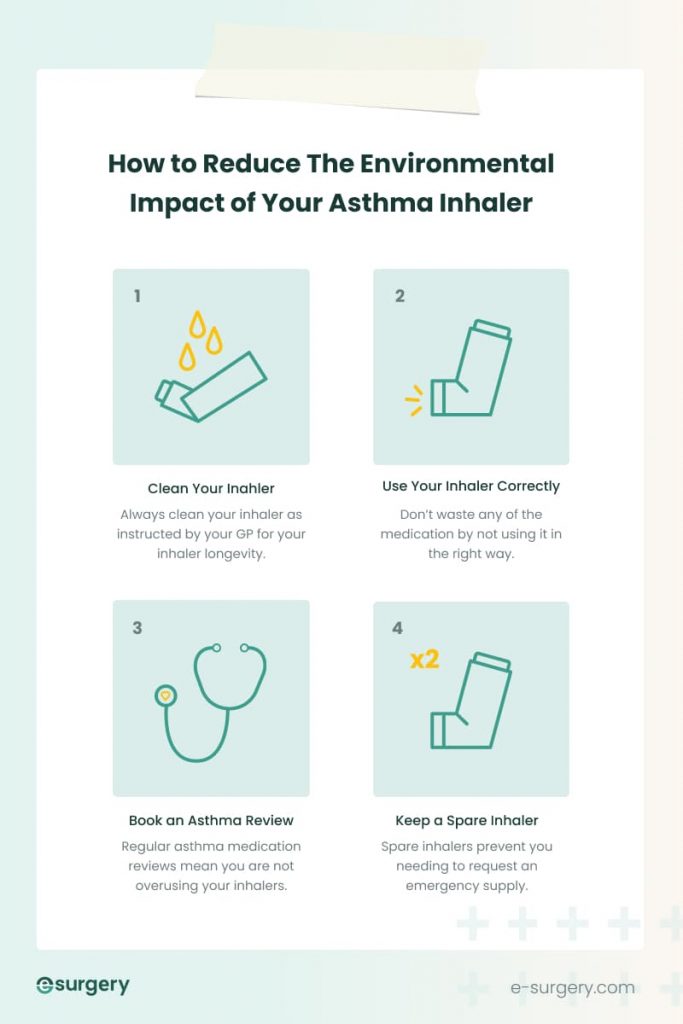
Inhalers are meant to provide a breath of fresh air for asthma sufferers. But what if our inhalers actually pollute our atmosphere with CO2? Metered-dose inhalers, the most common type of inhaler in the UK, could contribute nearly 4% of the carbon footprint of the NHS.
We can’t just stop using inhalers. There are millions of people in the UK who rely on their inhalers to prevent potentially life-threatening asthma attacks. Fortunately, there are still Eco-friendly choices that we can make. Let’s look at the environmental impact behind inhalers and what can be done to help. (Find out more about how to choose a sustainable pharmacy)
How Do Inhalers Contribute To Climate Change?
You may be wondering how using inhalers can have any impact on the environment. It’s due to the gases they contain. Metered-dose Ventolin inhalers use a gas as a propellant. Hydrofluoroalkane Propellants (HFAs for short) are greenhouse gases and are released with each puff of an inhaler. Over a year, your personal carbon footprint from inhaler use could be in an excess of a 100kg of CO2!
It’s important to note that these figures are actually estimates. The exact amount of HFA present in inhalers isn’t public information, so the carbon footprint is calculated from research. The environmental impact of inhalers has also improved over time – HFA inhalers have no impact on the Ozone Layer, unlike Chlorofluorocarbons (CFC) propellants, which are now banned.
Thankfully for inhaler users, there are ways to reduce the environmental impact.
Making The Most Of Your Inhaler

Making every puff count helps control the amount of HFA that is released. Metered-dose inhalers work best when you take slow breaths in, lasting about 4 seconds. Multiple quick puffs are actually less effective and use up the inhaler faster. Using your inhaler properly is best for your health and the health of the environment.
If you’re worried about the effectiveness of your inhaler, make sure it’s clean. We’ve produced step-by-step guides on how to clean a Ventolin & Salbutamol inhaler and a Clenil Modulite inhaler, which you should be doing once a week.

Using Dry Powder Inhalers
For some people, dry powder inhalers work as an environmentally friendly alternative to standard inhalers. Dry power inhalers release far less CO2 than metered-dose inhalers – in fact, making the switch could be as environmentally friendly as going vegetarian.
Make sure to talk to your doctor or pharmacist about changing to a dry power inhaler. It could be a green option that is just as effective as a metered-dose inhaler, but it doesn’t work for everyone. To use a dry power properly, you need to inhale strongly enough to breathe to medicine deep into your lungs. Not everybody can do this, and some find that dry power inhalers don’t control their asthma symptoms as effectively as a metered-dose inhaler.
Your health comes first. If a dry powder inhaler doesn’t work for you, keep using your standard inhaler. There are still plenty of ways to cut your carbon footprint.
Recycling Your Inhalers
Once you’re finished with your inhaler, don’t just chuck it – it’s important to get it recycled. Unfortunately, you can’t rely on local councils to recycle specialist items like used inhalers. The eco-friendliest option is returning your used inhalers to a pharmacy. Some pharmacies safely dispose of the inhaler, destroying the HFA gases through thermal treatment. Other pharmacies that are part of the Complete the Cycle scheme can recycle your inhalers, which helps save a tremendous amount of waste. If everybody with an inhaler in the UK made sure to recycle and return their used inhalers, we’d be saving 512,330 tonnes worth of greenhouse gases over the course of a year. For comparison, that’s the carbon footprint of a VW Golf driving around the world 88,606 times!
If you’re looking to lower your carbon footprint from inhalers, recycling them is the most impactful choice you can make.
Making Eco-Friendly Choices In Your Life
As we become more aware of how our daily decisions affect the world around us, people are starting to make eco-friendly lifestyle choices such as eating less meat, travelling less by car or plane or buying less plastic. It’s the little compromises we make that can make a big difference to the environment.
However, asthma is a serious health issue. It’s really important for asthma sufferers to have a reliver inhaler on hand that works for them, and a preventative inhaler that keeps their symptoms under control. It’s not an option for asthma sufferers to simply ‘give up’ their inhalers!
If you use metered-dose inhalers and you’re striving to be more Eco-friendly, look to other areas of your life in which you can make changes without risking your health.
One option is to make sure you’re getting your Ventolin, Salbutamol or Clenil inhalers from an environmentally-friendly online pharmacy like e-Surgery. At e-Surgery, we care about your health and health of our planet. We’re moving towards becoming a carbon neutral pharmacy with fully recyclable packaging. Check out our Environmental Policy, and read more about why we’re the Eco-friendly pharmacy of choice.
Further Reading
- What To Do With Inhalers | Recycle Now
- Nice Encourages Use of Greener Asthma Inhalers | National Institute For Health And Care Excellence
- Asthma | NHS








